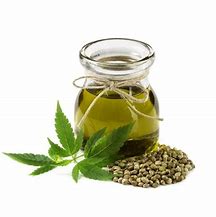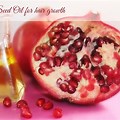Pumkin Seed Oil - Cucurbita maxima, C. pepo




Pumpkin Seed Oil
Latin Name: Cucurbita maxima, C. pepo
Family:Cucurbitaceae
Etymology: Cucurbita is the Latin name for a gourd, and maxima means largest: pepo is latin for large pumpkin or marrow.
The Plant and its Environment
The pumkin grows in warmer climes and is an ancient vegetable (fruit). It is said to have grown continuously in the Americas for some 9,000 to 10, 000 years! Pumpkins were introduced into England in the 17th Century where they grow quite well on compost heaps, and these huge vegetables captured the popular imagination, even to the extent of being incorporated in a fairy tale. Pumpkin pie is popular in the USA and the hollowed out shell with candlelight shining through the pierced eyes and mouth is ubiquitous at Halloween.
Method of Extraction
The seeds are pressed to make a dark sweetish oil.
Principle Constituents
| Type | Based On | Content - % |
| Saturated fatty acid | ||
| C16:0 | palmitic acid | 8 |
| C18:0 | stearic acid | 5 |
| Monounsaturated fatty acid content | 15 | |
| Monounsaturated fatty acid | ||
| C18:2 | linoleic acid | 48 |
| C18:3 | alpha-linolenic acid | 15 |
| Typical polyunsaturated fatty acid conrent | 45 |
Mineral Content
Pumpkin seeds are rich in zinc.
Folk-lore and Traditional Plant Remedies
Pumpkin seeds are about 30% protein and contain a significant amount of zinc, useful for maintaining the health of the prostrate gland . Pumpkin seeds are eaten by some Romany men to maintain their virility. The seeds are used for travel sickness and together with Senna alexandrina for tapeworms and round worms (Bow 1995). Bartram (1995) states that punpkin seeds are ground and mixed with honey as an anthelmintic because of their antimitotic effect are used to arrest prostrate gland enlargement.
Therapeutic Properties - Internal
As a winter food supplement, pumpkin seed oil is reputed to be good for the lungs and mucous membranes. It is also slightly diuretic for urinary complaints, is used as a demulcent and as a general vermifuge (Duke 1985) and healing (Stier 1990) to the digestive tract. Pumpkin seed oil is emollient, calming, laxative, and is employed in cases of demineralisation. It is only necessary to use it in small quantities (1 dessertspoonful for an adult). The oil is placed among the top five oils from a nutritional standpoint (Stier 1990).
Reference: Carrier Oils For Aromatherapy & Massage: Len Price with Ian Smith & Shirley Price
Articles-Most Read
- Home
- Contact Us
- Coconut Oil-2
- Absorption Ratings for Carrier Oils
- Cold Pressing Method
- What are Essential Fatty Acids
- Cherry Kernel Oil
- Fixed Oils and Skin Penetration
- Hempseed Oil
- Almond Oil
- Cocoa butter
- Camelina Oil
- Antibacterial Effects Of Carrier Oil
- Coconut Oil
- Lime Blossom Oil (macerated)
- Carrot Oil, Wild Carrot Oil (macerated)
- Apricot Kernel Oil
- Kukui Nut Oil
- Pumkin Seed Oil - Cucurbita maxima, C. pepo
- Jojoba Wax
- Passion Flower OIl (Macerated)
- Hydrocotyle Oil (macerated)
- Palm Kernel Oil
- Rapeseed Oil - Carrier Oil
- Nutrients
Who's On Line
We have 81 guests and no members online
Articles-Latest
- How to Make Homemade Olive Oil: A Step-by-Step Guide
- 20 Evidence-Based Aloe Vera Oil Benefits For Skin, Hair & Health
- Peanut oil - Cold pressed - Are There Health Benefits? How To Make
- What Are the Health Benefits of Black Seed Oil?
- Comfrey oil Infused
- Chamomile Flowers Infused Oil
- Calendula Flowers Infused Oil
- Arnica Flowers Infused Oil
- How To Make Herb-Infused Oils
- DIY avocado oil for healthy skin
- How To Make Coconut Oil
- 8 Benefits of Mustard Oil, Plus How to Use It
- SHOREA STENOPTERA SEED BUTTER
- Shea Butter- 7 Amazing Benefits Of Shea Butter
- Monoi Oil For Hair & Skin
- Mango Seed Oil
- Cohune Oil Is The Next Big Thing
- Brazil Nut OIl
- 7 Impressive Benefits Of Allspice
- Camelina Oil Benefits, Uses, and Side Effects




